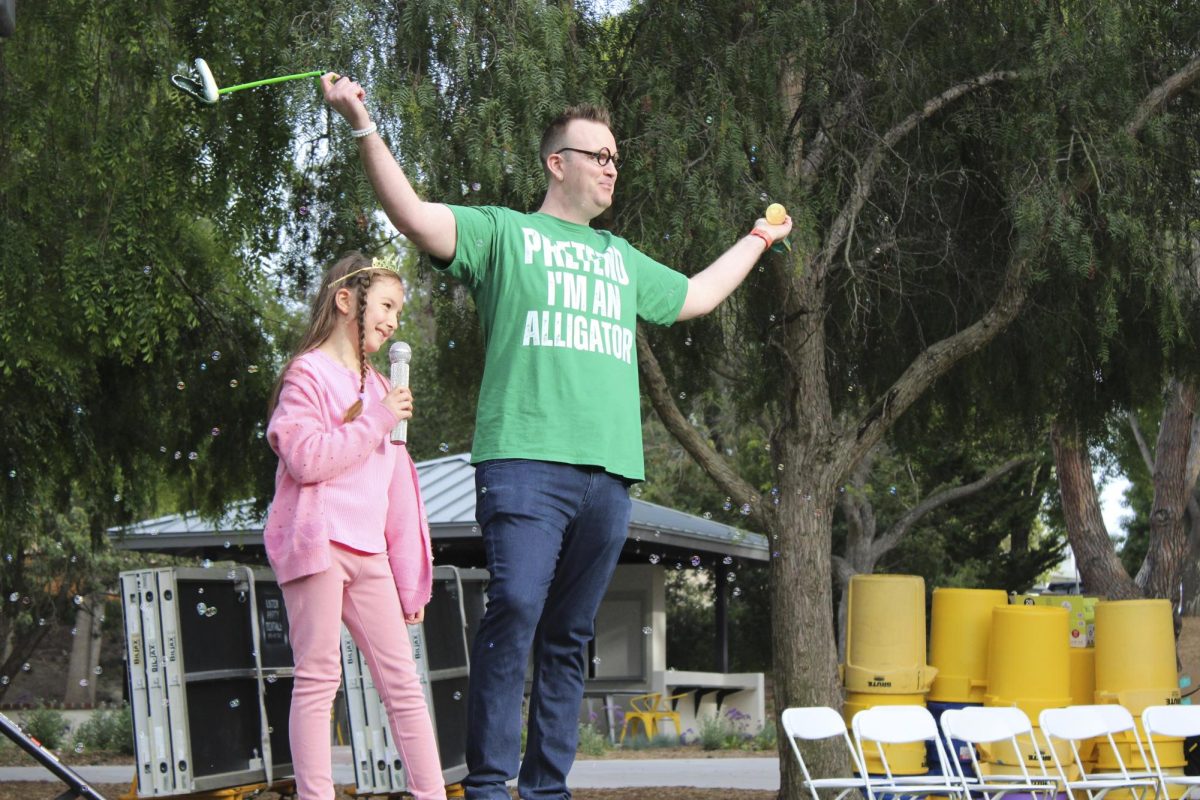The California Lutheran University School of Management held a panel called “DEIJ in the Workplace: Overcoming Barriers & Navigating Success” on Tuesday, Oct. 10 about the challenges faced by underrepresented groups in professional fields.
The panel, which featured Cal Lutheran alumni Rafeal Cordero, Brittney Elhard, Mark Garcia and Karen D. King, centered around panelists sharing their personal success stories with current students and faculty.
John Garcia, assistant professor of finance and analytics at the School of Management, moderated the panel. The panel began by asking audience members whether they had experienced some form of bias in the workplace, and the results showed that two-thirds of attendees had experienced it.
Panelists were then asked to describe how they navigated situations of bias in their respective fields, and how it impacted their career journeys.
Karen D. King, a regulatory strategy lead for Opus Regulatory, opened the discussion by recounting how as a Black woman in the pharmaceutical industry, she rarely ever saw any representation of women, particularly Black, Indigenous and women of color within her field.
“I was successfully getting promoted, but when I asked that I manage folks, I wanted to give back what I learned. I was told that I needed to go back to school to get an M.D….or a P.h.D, something that was not needed to do the work that I was doing. My own manager, who said this at the time, also did not have types of degrees,” King said.
Another topic that the panelists spoke about was mentorship and its importance for underrepresented communities.
“Mentorship is very important. You have to have networking experience to get to that point so that you can ask questions, so that you can cite your mentors, and you can be with them in the moment they need you,” Director of Information Technology and Services at The Rivera Ridge School, Rafael Cordero said.
A common thread among the panelists was that their individual careers held several challenges, and change was a concept they said they had to become acquitted with early on in their careers.
“I really just think that the one strategy that I used was to be open to new opportunities and be flexible with change. I graduated with an undergraduate degree in English a very long time ago here at CLU, and I now work in IT,” Brittney Elhard, senior director of information technology at J.D. Power, said.
Identity was also a part of the discussion. From being women, people of color, the children of immigrants, or immigrants themselves, each of the panelists came from underrepresented groups with characteristics that made it difficult to balance their personal identities with the status quo within their fields.
Mark Garcia, adjunct finance professor at Cal Lutheran and chief financial officer at Arctic Cold LLC, said he was the child of two immigrant parents who worked as fruit and vegetable pickers, and that it was difficult to often find people with similar backgrounds in his field.
“That’s what helped me navigate through those tough times when I was in a room or I was in conferences and I was the only colored person in that room. The only person that was bilingual. But yet, knowing that I had all those aspects and those attributes, that made me feel better,” Garcia said.
According to Garcia, the School of Management regularly surveys students on the types of events and discussions they would like to see held at Cal Lutheran. Several attendees from a previous event expressed an interest in hearing the experiences of underrepresented communities in nontraditional fields, Garcia said.
“Ultimately, you want to be able to learn from others so you don’t make the same mistakes, right? So it’s one of the best ways to accelerate your own career…to leverage what others have learned to reflect what implication you may have on your own career,” Garcia said. “Having people like this be able to share their experiences is one good way to do that.”
Garcia said holding discussions where students can gain practical understandings of real-world work experiences may better equip them to enter the workforce post-graduation.
“In the classroom, we don’t touch on these separate things, right? So it’s much more focused on topics at hand. This is more of some of the things that are extremely important for people’s success that students should be getting,” Garcia said.
The School of Management regularly holds discussions and panels, and upcoming events can be found on their website.













